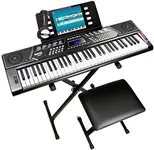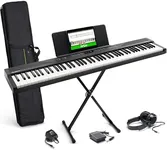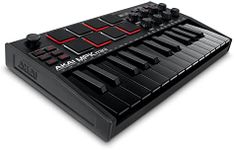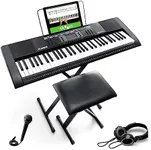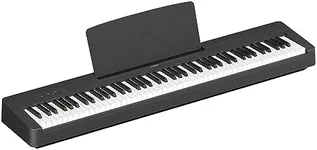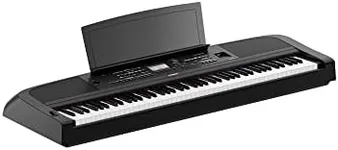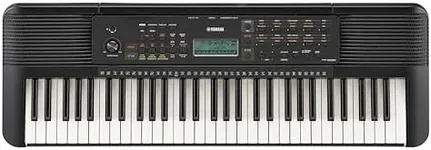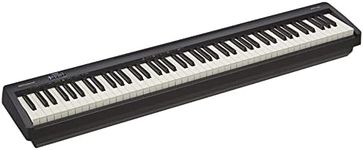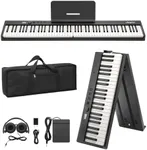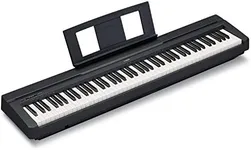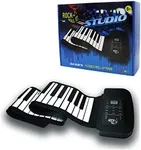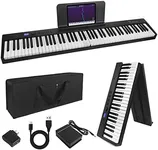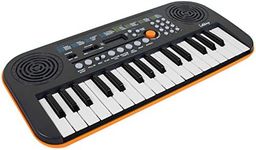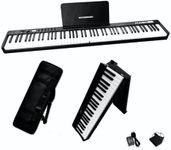Buying Guide for the Best Musical Keyboards
Choosing the right musical keyboard can be a rewarding experience, whether you're a beginner or an experienced musician. The key is to understand the various features and specifications that different models offer, and how they align with your personal needs and goals. By focusing on the key specs, you can make an informed decision that will enhance your playing experience and help you grow as a musician.Number of KeysThe number of keys on a keyboard can range from 25 to 88. This spec is important because it affects the range of notes you can play. Keyboards with 25-49 keys are more portable and suitable for beginners or those with limited space. Keyboards with 61-76 keys offer a good balance between range and portability, making them ideal for intermediate players. Full-sized keyboards with 88 keys are best for advanced players or those who want a piano-like experience. Consider your skill level and the type of music you want to play when choosing the number of keys.
Action and Touch SensitivityAction refers to how the keys respond when pressed, and touch sensitivity means how the keyboard responds to the force of your playing. This spec is crucial for replicating the feel of an acoustic piano. Keyboards can have synth action (light and springy), semi-weighted action (a bit more resistance), or fully weighted action (similar to an acoustic piano). Touch sensitivity allows for dynamic playing, where pressing harder produces louder sounds. Beginners might start with synth action, while more advanced players often prefer weighted keys for a more authentic feel.
PolyphonyPolyphony is the number of notes a keyboard can produce at once. This spec is important for playing complex pieces or using the sustain pedal. Keyboards with 32-note polyphony are suitable for beginners, while 64-note polyphony is good for intermediate players. Advanced players or those using layered sounds and effects should look for 128-note polyphony or higher. Your playing style and the complexity of the music you intend to play will guide you in choosing the right polyphony.
Sound Quality and VoicesSound quality and the variety of voices (instrument sounds) a keyboard offers are essential for a satisfying playing experience. High-quality sound samples and a wide range of voices can inspire creativity and make practice more enjoyable. Beginners might be content with a basic set of voices, while more advanced players may want a keyboard with a diverse and high-quality sound library. Consider what types of sounds you need for your music and how important sound quality is to you.
ConnectivityConnectivity options, such as USB, MIDI, and audio outputs, are important for integrating your keyboard with other devices and software. This spec is crucial for recording, using music software, or connecting to external speakers. Beginners might only need basic connectivity, while more advanced users will benefit from a wider range of options. Think about how you plan to use your keyboard and what devices you might want to connect it to.
Built-in FeaturesBuilt-in features like metronomes, learning tools, and recording capabilities can enhance your practice and performance. These features are particularly important for beginners who need guidance and practice aids. Intermediate and advanced players might look for keyboards with more sophisticated features like multi-track recording and advanced effects. Consider what features will support your learning and playing style.
PortabilityPortability is a key consideration if you plan to move your keyboard frequently or have limited space. This spec is important for musicians who travel or perform live. Lightweight and compact keyboards are easier to transport, while larger, heavier models might offer more features but are less portable. Think about where and how you will use your keyboard to determine the right balance between portability and functionality.
